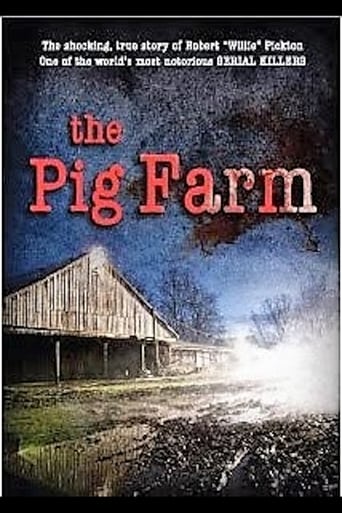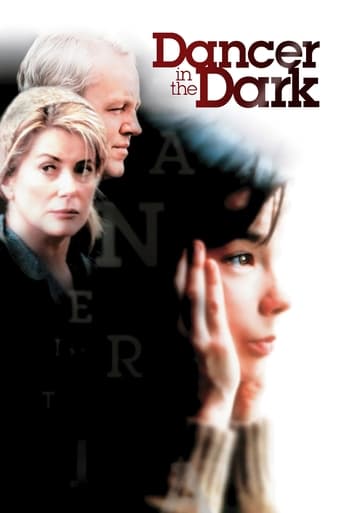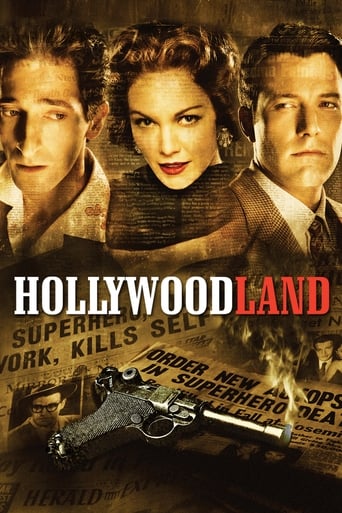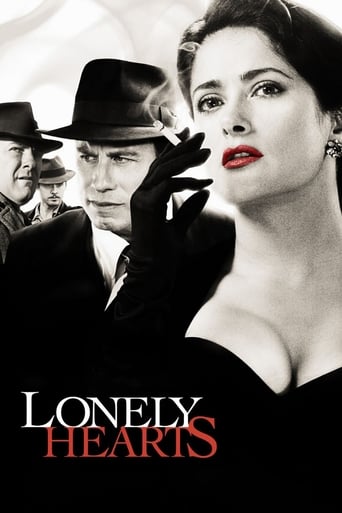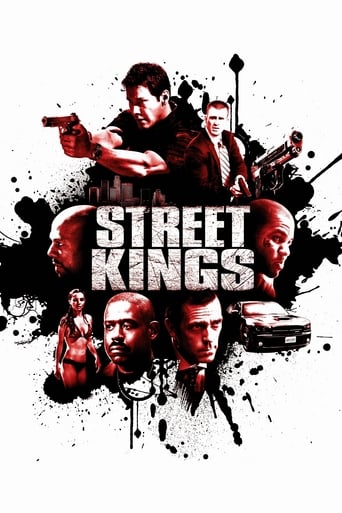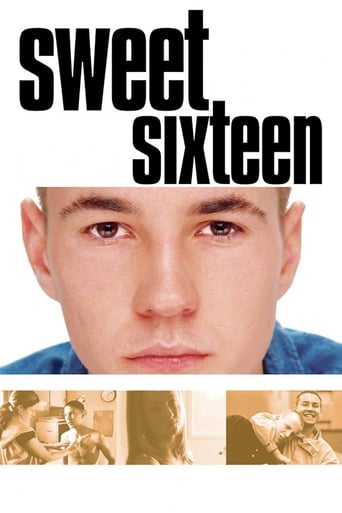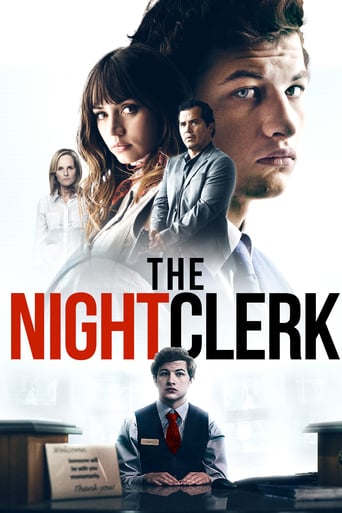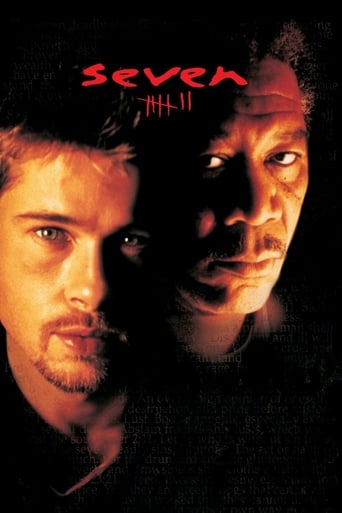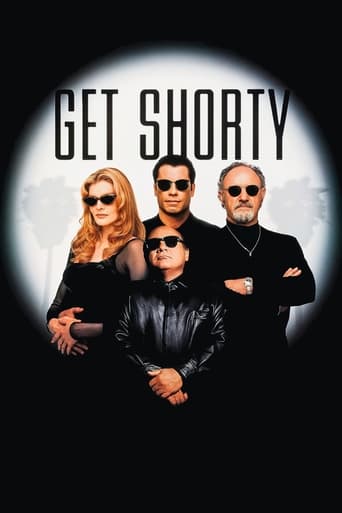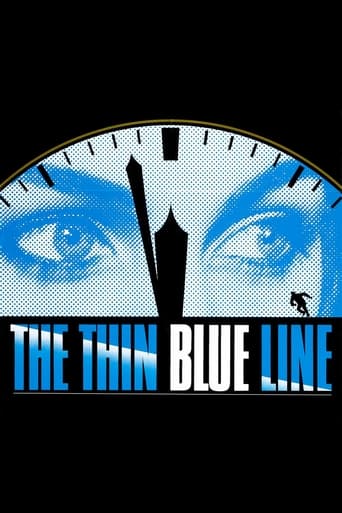
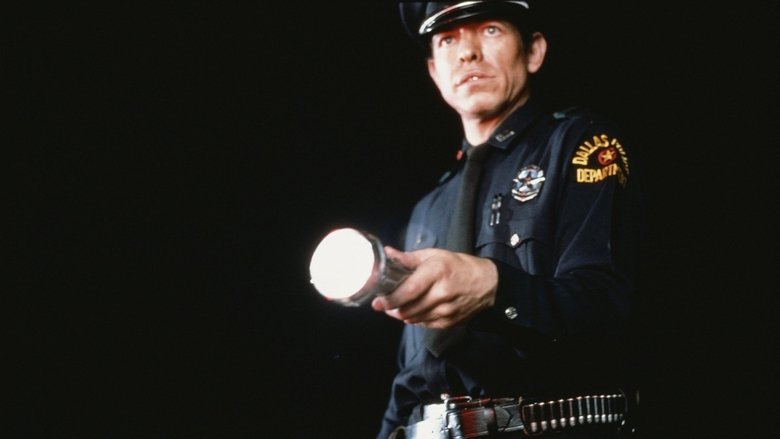
The Thin Blue Line (1988)
Errol Morris's unique documentary dramatically re-enacts the crime scene and investigation of a police officer's murder in Dallas.
Watch Trailer
Cast


Similar titles
Reviews
Considering the acclaim for this, perhaps I expected something a little more unconventional. The film, is certainly a fabulous mood piece. The director is not afraid to have different recreations based on different peoples' memories, and he certainly revels in trying to come up with the ambiguities in all of the films. The film does start off ambiguous by the start, but somewhere along the way the scales tip in one side and you're then firmly planted on one of the two sides, and all of this is of course intentional, and there is enough speculation to make you confident in your belief but still not actual evidence, which does leave the whole thing open by the end.
A film that successfully argued that a man (Randall Dale Adams) was wrongly convicted for murder by a corrupt justice system in Dallas County, Texas.Morris was originally going to film a documentary about prosecution psychiatrist, Dr. James Grigson, known as Doctor Death, who testified in more than 100 trials that resulted in death sentences. In almost every instance, Dr. Grigson would, after examining a defendant, testify that he had found the individual in question to be an incurable sociopath, who it was "one hundred per cent certain" would kill again.This lead Morris to find an example, Adams, where this "incurable sociopath" status was in doubt. But we also still have that critique of Grigson -- we see what he said about Adams, a man with no history of criminal acts or violence, after only fifteen minutes with him.This change in focus lead to a better film, most likely (though Erroll Morris has an incredible track record for good documentaries). We now get to see a wider picture of eyewitness testimony, the prejudice of the area (which includes a thriving KKK) and more.Adams' case was reviewed and he was released from prison approximately a year after the film's release. Now that is the sign of a powerful film, and what makes documentaries so great.
This is a timeless classic in every sense. How long have there been innocent people accused and punished for crimes at the hands of shallow people for shallow purposes? What an excellent review and indictment of the legal system of Texas, of which I am a resident, and the legal system in general.A dude gets into a car with a psychopath and his life is changed forever. The story is well known by now-if not by this documentary, then by countless others.I would believe that the person responsible for this expose is intimately familiar with the concept of false accusations. The horror illustrated herein is magnified by the factor that the state of Texas (or any other state) is willing to buy into any cheap lie or sideshow which lends convenience to the apparatus responsible for obtaining a conviction, whatever the cost.As one who has been falsely accused, I was riveted. If I only had the talent and resources of this author.
The film has often been likened to Akira Kurosawa's fictive film- also about a murder, Rashomon. The problem with that analogy is that, in the Kurosawa film, one has no basis by which to know which of the several versions of the killing are correct. In The Thin Blue Line- both from the many tellings and the way Morris presents them, it's obvious that Adams is innocent and Harris is guilty. The only Rashomon like thing is the fact that re-enacted tellings of the shooting all vary, from the two principals, to the cops' claims, to those made by the assorted witnesses who, in actuality, saw nothing. The fact that the many re-enactments are at odds with Morris's clear view that Adams was innocent is a minor failing of the film, and shows Morris was still trying to live up to the dictum that a documentary has to be (or try to be) objective in its presentation of its facts. But, in a case where the evidence is so incontrovertibly one-sided, is such an effort worth it, dramatically or aesthetically? I think not, and films like Barbara Kopple's Harlan County, USA are proof of my claim. The title of the film comes from the old notion that a thin line of cops (hence the blue) is all that saves civilization from its own worst instincts. The judge who sentenced Adams, when recounting the summation of the DA, tells how he almost teared up at hearing the use of the term. The film, however, turns the title on its side and shows how that same line can be used as a tool for injustice, suppression of evidence, and the oppression of innocents. And it is this perversion of 'justice' that can hasten society's fall far more than the mere absence of that thin blue line.The Thin Blue Line is both a landmark and important film, but those claims are not equivalent to calling it a great film. Arguments can be made, in which case a claim for near greatness may be apt, but not greatness. Compared to the documentaries of Morris's friend and mentor, Werner Herzog, The Thin Blue Line still has a far greater affinity to the sort of straightforward documentaries to be found on PBS shows like Frontline. However, the fact that it did great things- freed an innocent man and held up the so-called justice system to the greater scrutiny it deserves (be it for capital crimes or those as trivial as phony traffic tickets issued to meet monthly quotas)- is indisputable, and that makes it an important film. From a cinematic perspective, the best thing this still rather linear film did was bridge Morris's path from his early quirky documentaries to his later, greater films, like The Fog Of War, which is more clearly in the Herzogian mode. And, for that trajectory, alone, the world of cinema should be grateful.


